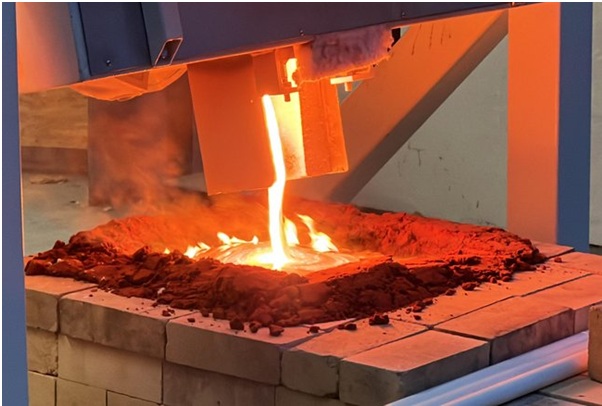The problem of waste accumulation every year is all over the world. These industrial and agricultural wastes are by-products, slag, rice husk ash, bagasse, fly ash, cement dust, brick dust, sludge, glass, tires, etc. The wastes represent a major problem for the environment because of the air pollution (the dust and very fine particles which spread in the atmosphere. Innovations are taking place to address these issues. In this regard, Team CORE from Eindhoven University of Technology has developed a new installation process that converts waste streams such as fly ash, sludge and shredder residue into an artificial replacement for basalt. Basalt is a volcanic rock that is imported mainly from China and Norway and serves, among other things, as ballast to keep the sleepers of train tracks in place.
The students have developed models that give the product the right properties to be able to act as a replacement for basalt. “This partly has to do with pressure sensitivity, but also with hardness and crystal structure, for example. Those properties have to be good to be able to use artificial basalt. The waste also contains heavy metals and toxins that must not be released when the final product is used, in order to prevent damage to people and the environment,” says CORE team captain Tatum Simons.
CORE’s facility effectively solves two problems: it gives a new function to fly ash (a stream released from incinerators such as biomass plants and household waste plants), sludge and shredder residue. These wastes are currently dumped, and this can pose a longer-term health and storage problem.
In addition, the process provides a safe, artificial substitute for basalt, which can be used as an alternative to the natural variant mined abroad and transported over long distances to the Netherlands. Transport by ship currently causes a lot of CO2 emissions, and the quarrying of basalt is also an environmentally polluting process. Basalt is used in the Netherlands for example as railroad ballast or in the production of garden tiles.
The big challenge for CORE is that the waste streams do not consist of pure materials, but an extensive mix of different minerals, metals and plastics. In addition, each waste stream is different. The student team is now researching the feasibility of the installation, called CORE Magma. This research is made possible by financial support from ProRail and others.
A large part of the funding for the installation came from ProRail and TU/e. The rest of the funding was provided by two TU/e alumni: Jan van Gemert (former CEO Gemco Casting) and Hans Fischer (former CEO TATA Steel). “Projects like this are an example of how different generations of TU/e students work together to improve the world,” Simons said.

